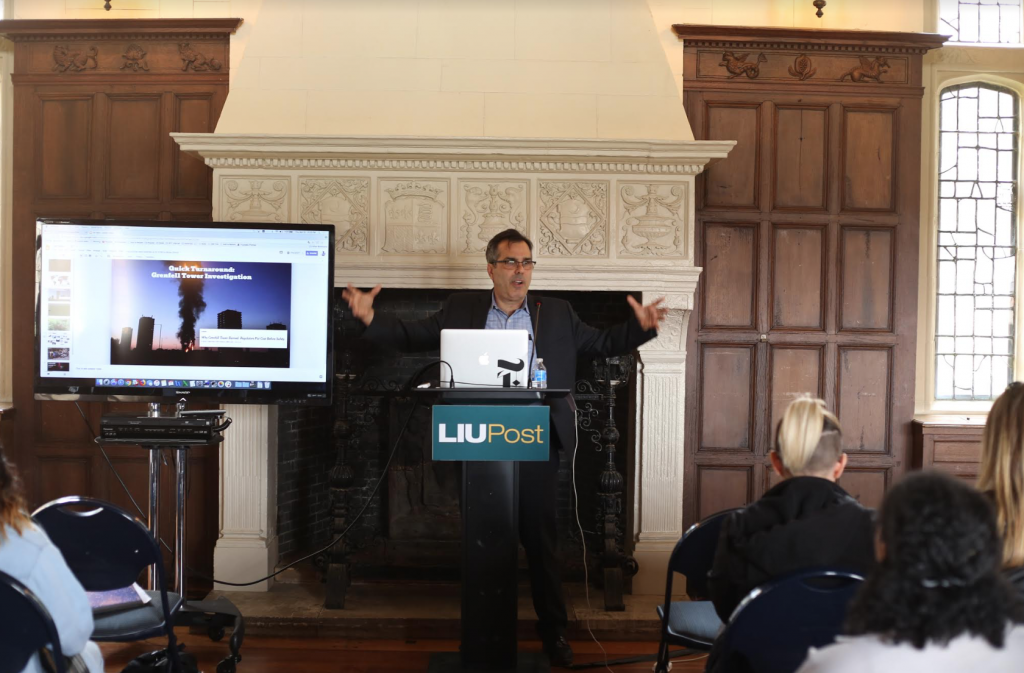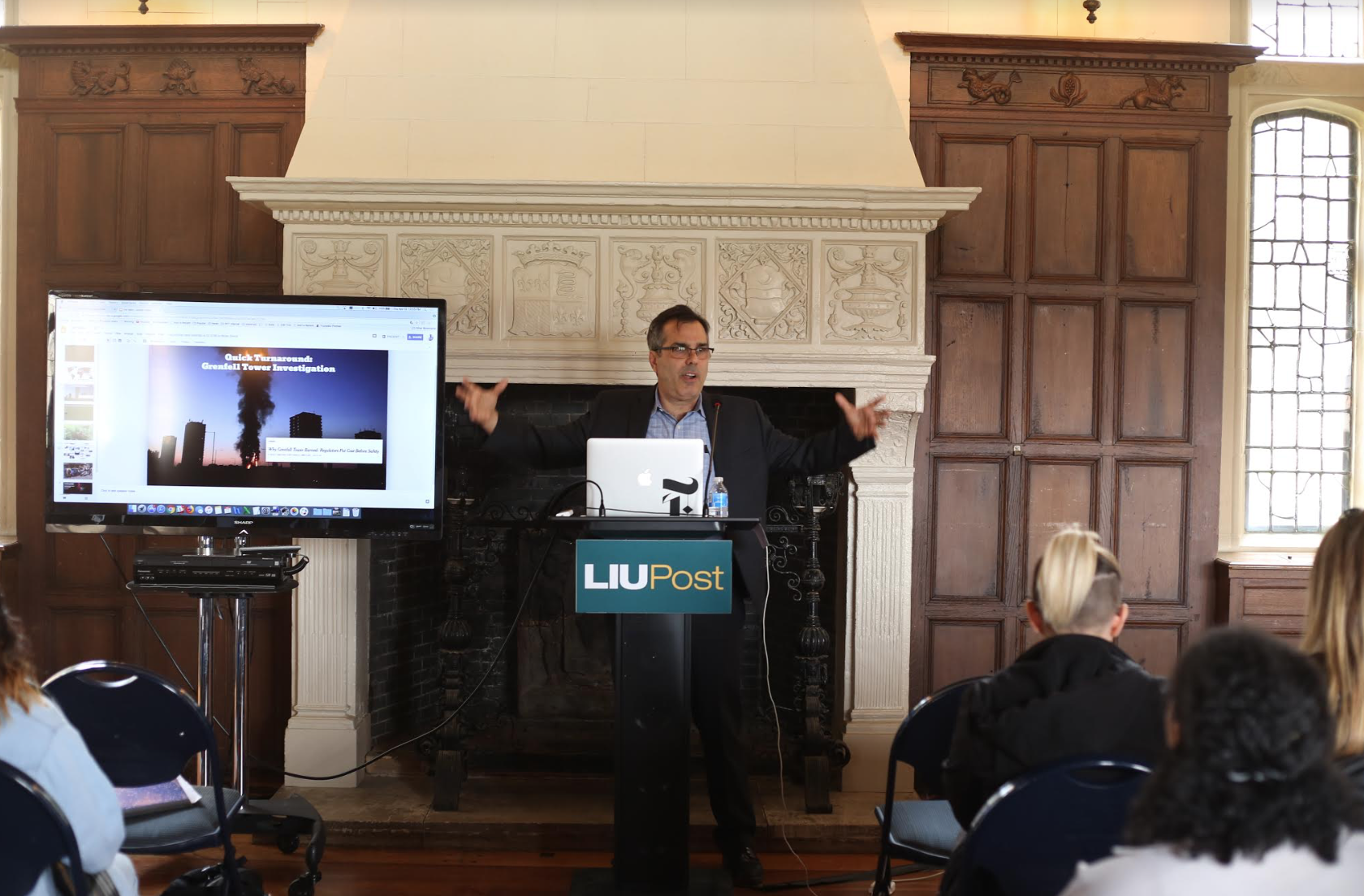By Angelique D’Alessandro
Assistant News & Online Editor
Two-time Pulitzer Prize winner Michael Slackman, the international editor for The New York Times, has been all over the world meeting new people, enjoying cab rides with rude taxi drivers and even being shot at from a helicopter. On Thursday, April 12, the College of Liberal Arts & Sciences and the College of Art, Communications & Design hosted Slackman, who told an audience of students and faculty about his career, the current state of investigative journalism, and the need for cultural understanding in his field of work.

Slackman began his work in journalism based on his self-proclaimed stubbornness. He submitted his work to the Hartford Times and was rejected, but he decided to continue writing and to not let one rejection discourage him.
“I worked harder, I read more, I wrote more, I started small. I worked at a tiny paper and kept at it,” Slackman said. “I worked my way up from the Port Chester Daily Item to Long Island Newsday, the Los Angeles Times, to the New York Times.”
Slackman lived in Russia, the Middle East and Europe, and has spoken to kings and presidents of many countries. He shared two stories of his time reporting abroad-one about teeth, and the other about garbage.
In the first story, Slackman described his time in Russia reporting on an economic crash that made Russian currency nearly worthless. While speaking to Russian people, he met a poor woman who had gold teeth. Because of his American upbringing, Slackman was confused. He had always thought that gold teeth illustrated wealth.
Slackman was quickly made aware of his mistaken logic by his interpreter.
“What I saw as bling was actually a sign of poverty,” he said.
In his story about garbage, Slackman described another moment where his initial judgements on a different cultural practice were proven wrong. While he in the Middle East, he took morning jogs. For days he passed a bridge in a town that everyone dropped their garbage bags under, creating a huge pile of waste.
As he watched the scene unfold, Slackman saw children and adults rummage through the piles for every piece of reusable material. Then came the women who brought their goats and sheep to the location, and the animals ate all the organic waste that was left. Whatever trash was left was swept away by a boy with a broom, and the process began again the next day.
“What you see is not always what you get,” Slackman said. “If you only view the world through the lens of your own experience, you’re going to make mistakes – you’re going to get things wrong.”
Seeing these scenes, which were so different from his own experiences, Slackman recognized something central to good journalism.
“Words matter, language matters, cultural context matters,” he said. “This is one of the reasons journalism matters. At its very best, it serves as a window into other perspectives, other worlds, other values.”
Slackman also developed a new understanding of democracy through his time reporting abroad.
“Where did I learn about [democracy]? In Tehran, the capital of Iran,” Slackman recounted. “Democracy is values. It’s about diversity, tolerance, and compromise.”
Throughout his travels, Slackman has seen war, extreme poverty, corruption and pain. He said, however, that despite all the suffering he’s witnessed, he has not lost faith in the people who experience these things.
“It’s difficult to sleep, but I have also developed a tremendous amount of faith in the endurance of the human spirit,” he said. “In each of these places where there’s tragedy happening, there are moms who are feeding their children and getting them to school and dressing them every day; there are dads who are figuring out how to go to work.”
To students eager to begin working in journalism, Slackman’s best advice is to get involved now, and to keep on doing what you love.
“If you want to be a journalist, if you want to be a writer, if you want to be able to insert yourself into other people’s lives, ask the powerful questions, hold them accountable…If you want to do that, just do it,” Slackman said. “Figure out a way to do it.”







Be First to Comment